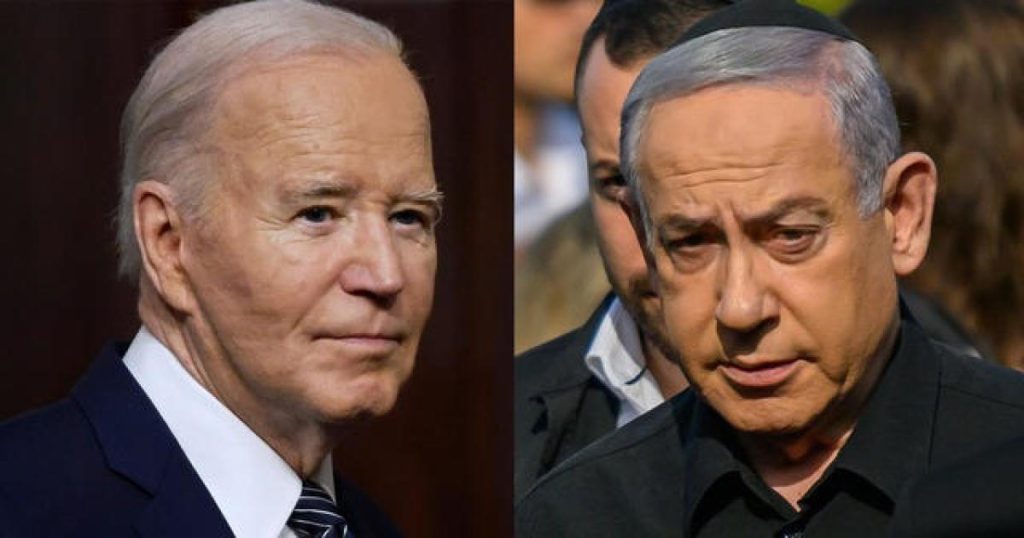President Biden has expressed sharp criticism of Israeli Prime Minister Benjamin Netanyahu’s handling of the war against Hamas in Gaza, calling it a mistake. He called for a cease-fire of up to two months to allow humanitarian organizations to deliver food and medicine to the region. Biden’s comments came after an incident where Israeli forces struck a World Central Kitchen charity team, prompting accusations of deliberately targeting the workers. The president urged Israelis to call for a cease-fire and allow total access to food and medicine for the next few weeks.
Vice President Kamala Harris met with families of Americans believed to be held as hostages by Hamas in Gaza. Jonathan Dekel-Chen, whose son is among the hostages, expressed the need for results and to bring the hostages back home. He voiced concern about Netanyahu’s intentions, questioning whether he is serious about securing the release of the hostages or just aiming to defeat Hamas. The ongoing conflict has resulted in casualties and a humanitarian crisis, with Hamas claiming more than 33,000 deaths in Gaza, including women and children.
Amid international pressure and mounting concerns, Israel has withdrawn some forces from southern Gaza, citing the need to regroup and prepare for future operations. Netanyahu has vowed to continue his mission to “destroy Hamas” in Gaza and has targeted Rafah as the next major offensive. While Israel has advised Palestinian civilians to seek shelter in southern Gaza, including Rafah, Biden’s administration and U.S. officials have expressed concerns about the approach. White House National Security Advisor Jake Sullivan emphasized that there are better ways to go after Hamas than targeting Rafah.
The United States is working with Israel, Qatar, and other regional partners to secure a cease-fire and the release of remaining hostages. Secretary of State Antony Blinken has placed the responsibility on Hamas to make a move towards peace. Meanwhile, U.S. Defense Secretary Lloyd Austin issued a warning, stating that if Israel does not allow more aid into Gaza and distinguish between Palestinian civilians and militants, it could lead to more violence and terrorist activity in the future. The situation remains critical, with ongoing efforts to address the humanitarian crisis in Gaza while seeking a sustainable resolution to the conflict.
In response to calls for a cease-fire, Netanyahu has stated that a date has been set for an Israeli ground offensive in Rafah, a move that has raised concerns given the potential impact on Palestinian civilians. The Israeli leader believes that the only way to eliminate Hamas is by sending IDF forces into Rafah, where combat units are reportedly still operating. Biden’s administration and U.S. officials have expressed reservations about this approach, urging alternative methods to address the conflict. The situation remains fluid, with ongoing efforts to achieve a lasting peace and address the humanitarian needs of those affected by the conflict.















